How to Respond to Diet Talk During the Holidays
- November 17, 2023
- Last Updated: December 27, 2023
- 7 Comments
- Intuitive Eating
How do you respond to diet talk during the holiday season? These tips can help you set boundaries and practice intuitive eating during the holidays.
As an Amazon Associate, I may earn from qualifying purchases. You can read more here about our Disclaimer and Privacy Page.
Diet Culture during the holidays can be prevalent. We all live in it, and there’s so much pressure to be perfect.
Is it possible to actually enjoy the holidays without focusing on food, weight and calories? Yes.
You definitely don’t need to go on a Thanksgiving diet, or holiday diet. We know that most fad diets fail.
You probably have many fond memories of the holidays growing up. And at one point or another, you’ve probably heard or experienced diet culture trying to take the joyfulness of the holidays away from you.
The holidays are supposed to be a time of togetherness, of gratefulness, love and giving.
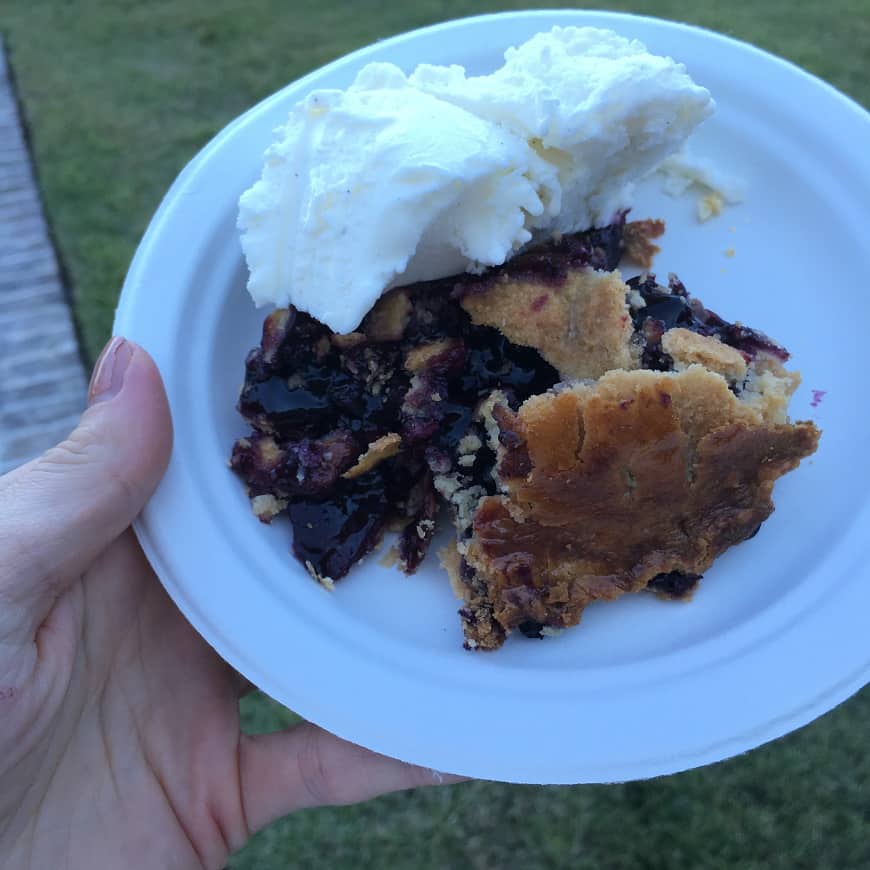
However, in our diet-obsessed world (that I call toxic diet culture), we’ve somehow turned something so special into a stressful event.
An event that revolves around thinking of ways to cut and save calories, to change traditional family recipes to “healthier,” and to burn as many calories as possible before eating.
Where did intuitive eating during the holidays go?
All of these reasons take us out of the present moment, and out of attunement with our body.
If we’re basing food choices on calories, are we really feeling satisfied after eating? Or, are we already thinking about our next meal?
If we’re only trying to burn calories, are we really reaping the other (mental, psychological, emotional) benefits of exercise?
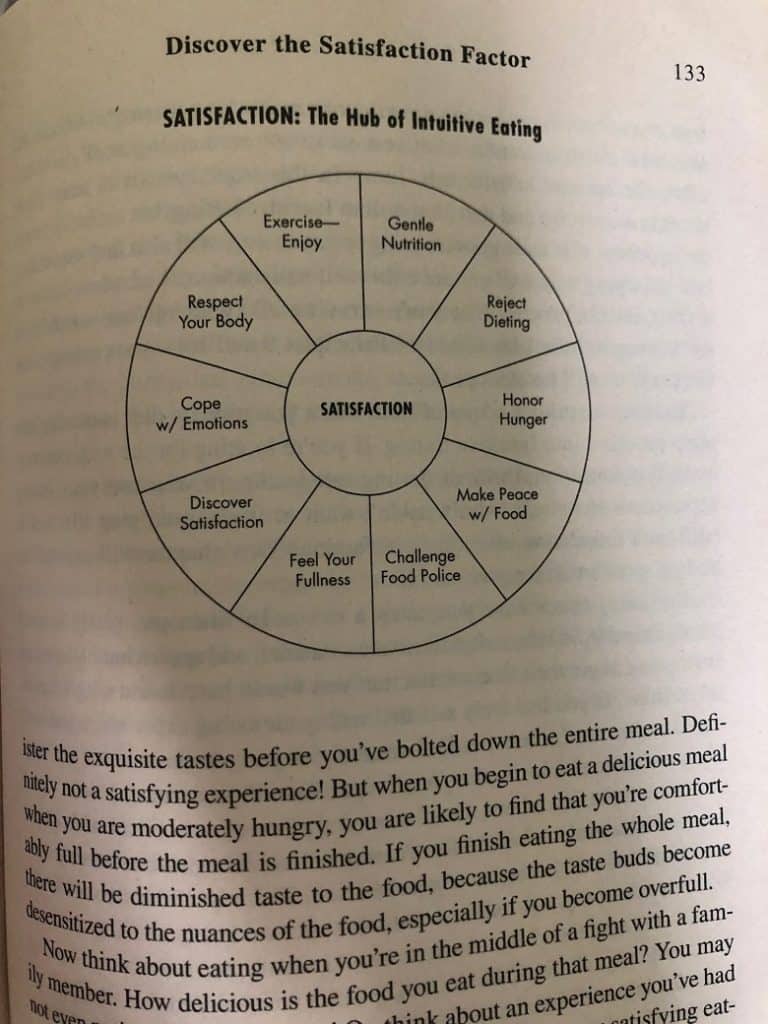
I’ve come up with some tips for how to respond to diet talk over the holidays.
How to Respond to Diet Talk and Comments About Weight
Dealing with diet talk over the holidays is something that impacts many families, whether it’s dealing with weight loss comments, weight gain comments, food shaming, or something else.
I hope you remember to have so much compassion for yourself during these times.
Especially if you are working on making peace with food. Know that these diet culture messages aren’t directed towards you and they aren’t the path to health.
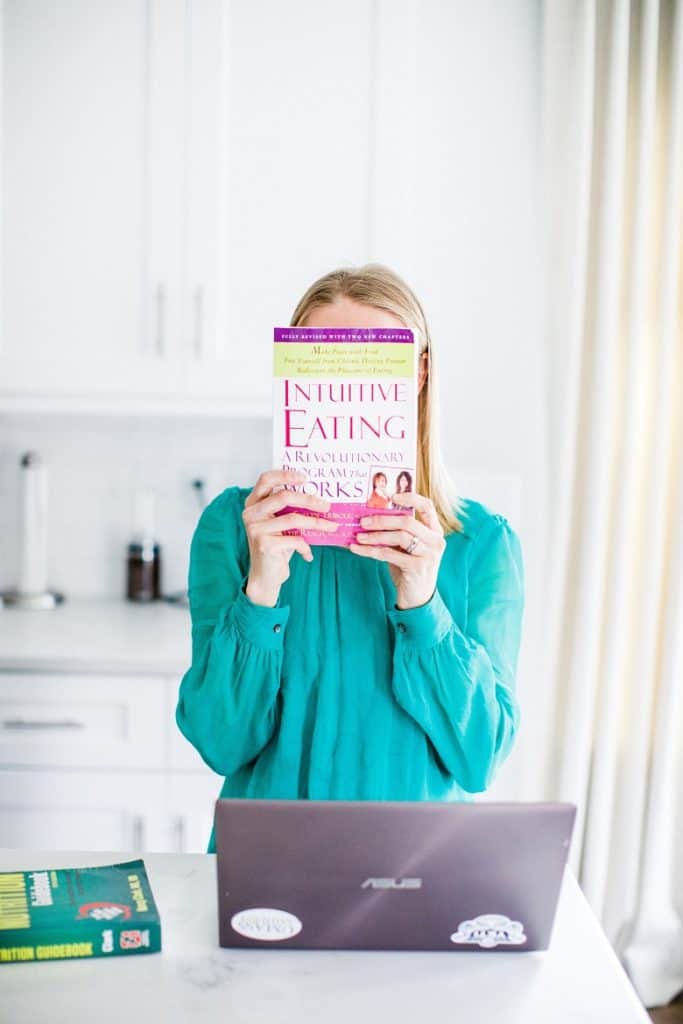
Be Kind and Compassionate
Towards yourself and towards others. But mostly towards yourself.
It’s okay to acknowledge that the holidays are difficult. And it’s okay to seek extra support during these times. Whether that be from a dietitian, a therapist, or a friend/family member, make your bubble a positive one.
Remind yourself that even though there are diet messages surrounding you, they don’t need to apply to you.
You are not a sponge – you do not have to digest everything you hear.
Diet culture messages are one of those things that you want to let go in one ear and out the other.

Sometimes it can help to remind yourself that you aren’t alone. The food police tend to come out loud and strong with diet talk during the holidays.
They come out in the media, in some family and friends, in advertisements and in random strangers who won’t hold back their opinions.
Remember that diet culture is not the law, and there are plenty of anti-diet professionals out there.
It might help to create a little “anti-diet” “virtual” survival folder or box.
Some things you can put in there:
- quotes or mantras that lift you up and remind you how awesome you are.
- Saved blog posts or articles that you’ve read (here are a bunch of anti-diet ones). Podcasts.
- A letter to your future self.
- Find a “safe” person – someone you can trust and support who can remind you why diet culture is deceiving and why diet culture is not the friend to bring along to the party.
Think About Your Food Rules
Think about your food rules (which come from the food police way of thinking), and try to distance yourself from them. You can do this verbally and through writing.
Why are these rules in the first place? We aren’t born with food rules so it can be helpful to identify how they originated.

Once you know your food rules and have an idea how they originated, it’s easier to tackle challenging them and practice food flexibility.
If we let go of our food rules, most of the time we can let go of any guilt surrounding food.

Remind Yourself That These Foods Are Available Anytime
Yes, the holidays are well known for their Christmas recipe favorites – Christmas cookies, eggnog, apple crisp and pies, but maybe you need reminding that you can really have these foods at any time.
Right?
Just buy them at the grocery store, or make them in your kitchen!
You can still have Christmas cookies in the summer if you truly want them. Giving yourself unconditional permission to eat at any time so can help take away that “last supper effect,” or out of control feeling.
Of course, you would feel a little out of control around foods you think you can’t have again until next year. Our body doesn’t do well with any sort of deprivation mindset.
It may even help to repeat to yourself, “there’s nothing special about festive foods.” These “festive foods” are available all year round – we just see them in higher frequency during the holiday season.

What is special is the memories created around them. Focus on those intangible things – how great it feels to take your grandma’s cookie recipe out of the oven.
Or, the laughs that come about from letting your kids do the mixing. Yes, food is special and nostalgic, but the focus on experience is bigger.
Challenge Yourself to Recreate Childhood Memories
What was it about the holidays that you remember as a child? What were some of your fond memories?
Maybe it was setting cookies and milk out for Santa on Christmas Eve. Or helping mom cook a casserole and cinnamon buns for Christmas morning breakfast.
Try to relive those.
Why was it so special then? Can it still be special now? What can you currently look forward to?

Give Yourself Permission to Say No
You have permission to say no. And that permission includes saying no to people, saying no to food, saying no to drinks, etc.
You have permission to change the subject if guests continue to talk about food, dieting or anything that makes you uncomfortable.
I like to ask people about their favorite traditions growing up, what gift they’re most excited about giving/getting, plans for new year’s, non diet resolutions, etc.
You also have permission to be blunt if that’s more of your personality. You can flat out tell someone, “I’d prefer not to talk about this anymore,” or ask more politely, “Can we talk about something else?”

Furthermore, you can ask people not to make any comments about your food, your plate, your appearance, etc. This is all self-care, too!
You are entitled to look out for yourself in any way, shape or form.
Intuitive Eating During the Holidays
When practicing intuitive eating during the holidays, the bottom line is to approach it with curiosity, NOT judgment, and to enjoy the whole experience that it has to offer.
Remember, this holiday is a lot more than just food. When we boil it down to food only, we are putting an extreme hyper-focus on food, which means we’re taking attention away from the other more important parts.

1. You have the right to savor your meal
You have the right to savor your meal, without cajoling or judgment, and without discussion of calories eaten or the amount of exercise needed to burn off said calories.
If someone starts talking about calories or needing to exercise tomorrow to burn them off, you have the right to ignore them. You don’t have to respond.
If you do choose to respond, you can let them know that your body knows how to use the energy provided, and you choose not to think about food in terms of calories. As we know, food is so much more and dumbing it down to calories is taking away some of the best parts of the eating experience.
There is for feeling guilty after eating the Thanksgiving table.
2. You have the right to another serving without apologies
Fill up your plate with what you like! Eat extra mashed potatoes and stuffing if that’s what you love.
Skip the veggies if they don’t sound appetizing. No one can tell you what a right plate looks like (it doesn’t exist), so eat more of what you like and want.
And you can skip what you don’t.
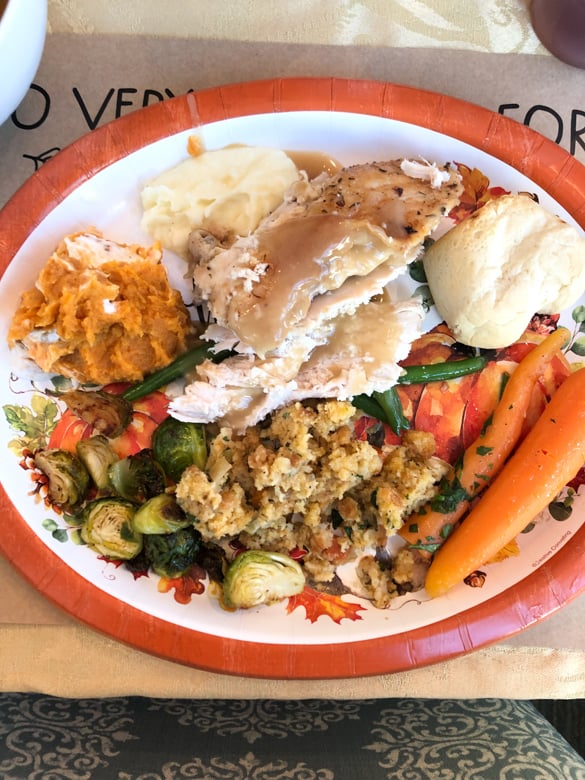
3. Honor your fullness
You have the right to honor your fullness, even if that means saying “no thank you” to dessert or a second helping of food.
We put so much pressure on ourselves leading up to Thanksgiving. We tell ourselves that we’re going to walk away from the table feeling like a 9 or 10 on the Hunger Scale.
Basically, feeling extremely full and sick. It is okay to eat past our fullness, but it’s also okay to stop before we get to that point.
4. You can say “No Thank You” Without an Explanation
If you’re someone who feels compelled to always offer an explanation, maybe it’s a great chance to keep it short and sweet. Sometimes, “no thank you,” is the easiest option, without feeling like you have to offer more information about why you’re saying no.
Honor and respect your body and know when to say no. While it may seem that you are hurting someone’s feelings, you are utilizing some self-care by listening to your body.
You can drink a mocktail without any explanation.
It is not your responsibility to make someone happy by overeating, even if it took hours to prepare a specialty holiday dish.
If people try forcing seconds upon you, you can politely thank them for the food they prepared while saying no in a nice way.
Some examples may be:
- I really appreciate all the time you put into that dish and I would really love to enjoy it when I have room for it. Will you save me some for tomorrow?
- I’ve reached my maximum for right now, and if I don’t get a chance to try it later, I would love to have some tomorrow.
- It looks delicious and I can tell how much work you put into this dish, so maybe I’ll try some later or tomorrow.
- No, thank you (simple but to the point!)
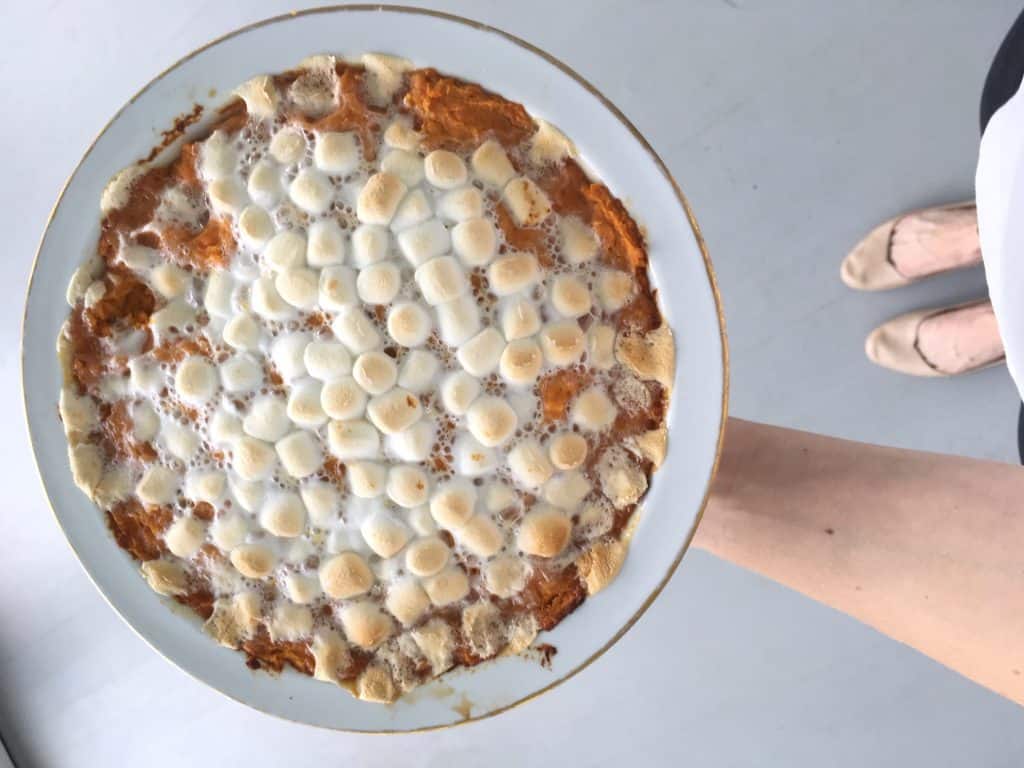
Diet talk during the holidays does NOT have to be the norm and you do not have to accept it.
Please let me know if you have any other questions and I’ll try to address them in the comments!
What’s your favorite holiday memory growing up?
Support Bucket List Tummy

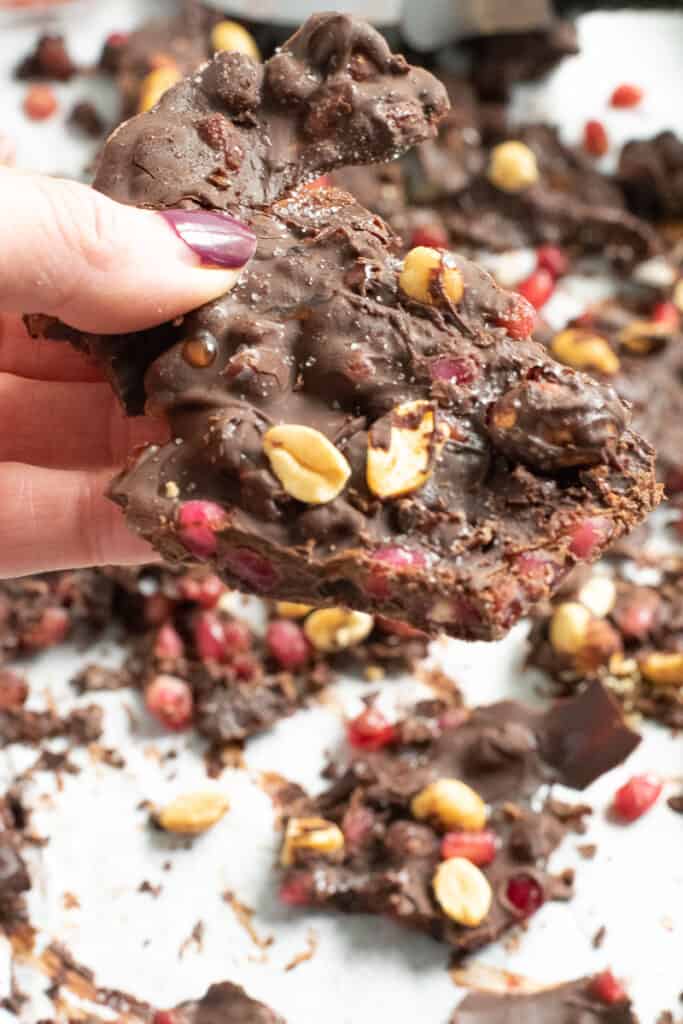


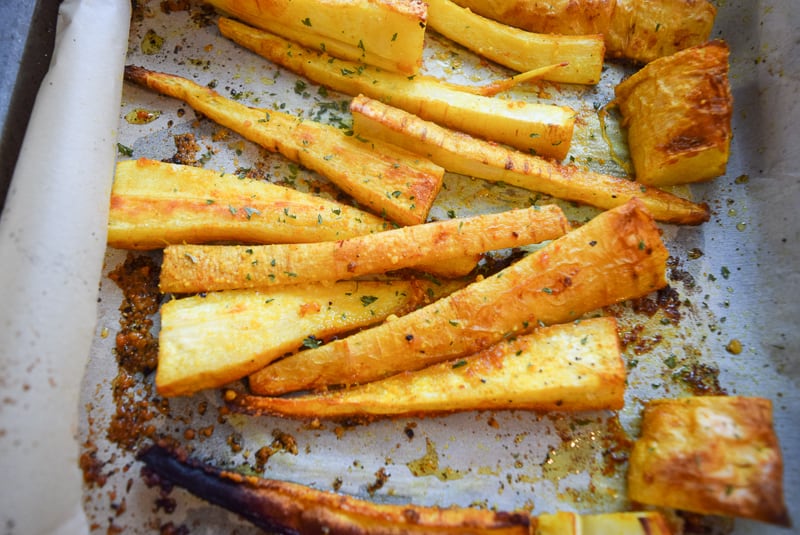
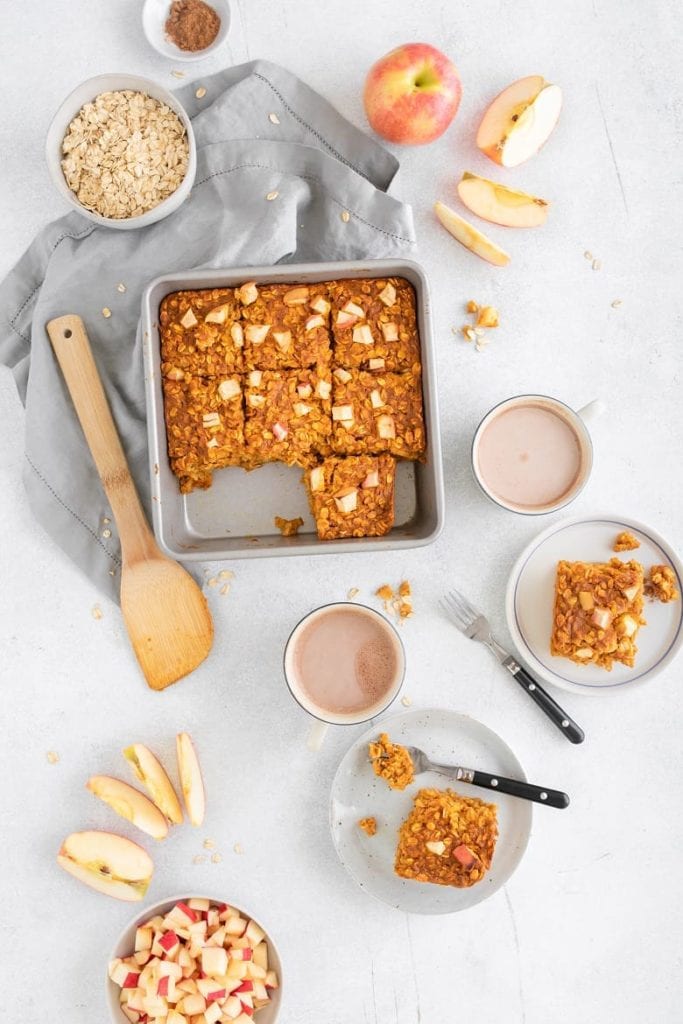


Like This Content?
Support Bucket List TummyGetting armed with ALL that ammo. I deal with hearing and seeing things through customers at work every day. I wear pretty intense ear muffs, especially at this time of year.
Most excited for…. oh my gosh. Just being at home with my family and thinking, “Oh my, it’s the holidays.” Haha. I haven’t really had a chance to actually let it sink in yet.
Happy Holidays to you and the family my dear friend <3. Hope your days over the next week are full of warmth and coziness and yummy yummy food.
Nice Tips keep up the good work. Thanks for information
Thank you for putting this together. One that gets to me most tends to be everyone talking about the last supper effect. That’s super common talk with my relatives.
I’m most excited for seeing Aubrey open her gifts and learn more about what this whole Christmas thing is all about. Most fond memory is probably opening my stocking and eating chocolate donuts in my parents bed with my sisters. We did that every single Christmas morning growing up!
It’s hard to remember that just because it’s a certain dish you have during the holidays doesn’t mean that’s the only time it’s available. The reminder is much appreciated!
I’m most excited about the trip to Germany that my family is taking!